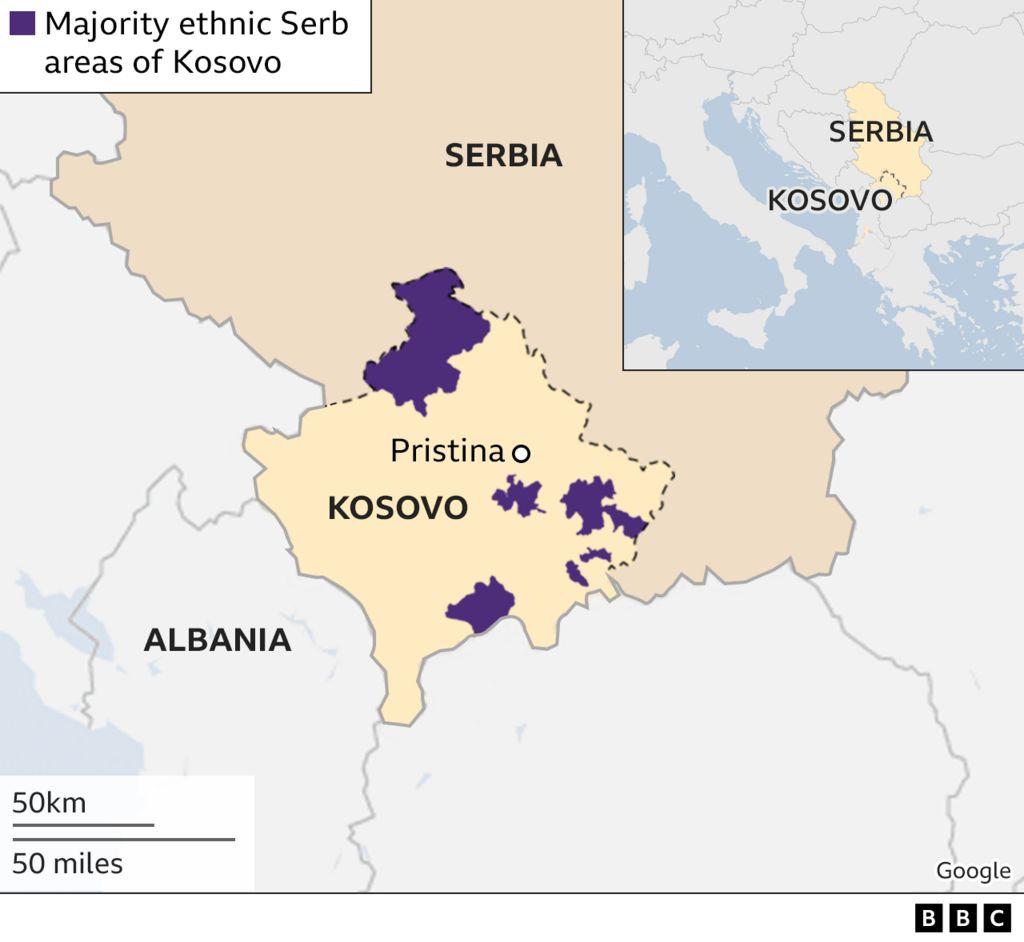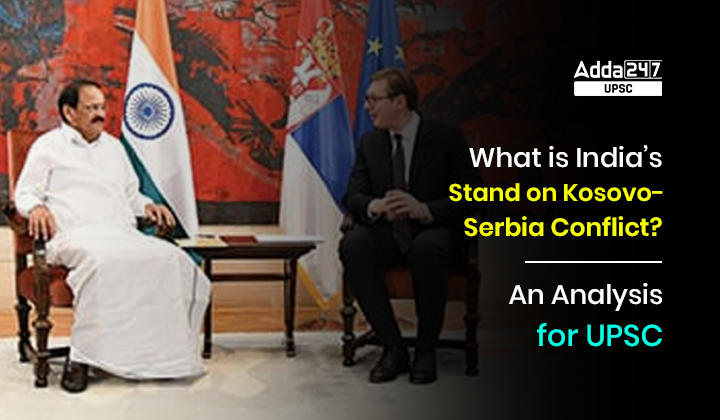Table of Contents
Relevance of Kosovo-Serbia Conflict for UPSC
Kosovo-Serbia Conflict, China-Taiwan Conflict, Israel Palestine Conflict, etc. are important to cover UPSC Mains GS Paper 2: Bilateral Groupings & Agreements, Groupings & Agreements Involving India and/or Affecting India’s Interests, Effect of Policies & Politics of Countries on India’s Interests
Why India’s Stand on Kosovo-Serbia Conflict in news?
After the Kosovo government supported the opening of a commercial office in New Delhi, India on November 25, indicated that it was a one-sided move and that there was no plan to recognise the European territory.
What is Kosovo-Serbia Conflict?

Where is Kosovo?
- Kosovo is a small, landlocked country in the Balkans, bordering Albania, North Macedonia, Montenegro and Serbia.
- Many Serbs consider it the birthplace of their nation.
- But of the 1.8 million people living in Kosovo, 92% are Albanian Muslims and only 6% Serbian. The rest are Bosniaks, Gorans, Turks and Roma.
How did Kosovo separate from rest of Serbia?
- After the break-up of Yugoslavia in the 1990s, Kosovo – a province of the former country – sought its own autonomy and independence.
- Serbia responded with a brutal crackdown against ethnic Albanians seeking independence.
- This ended in 1999, with a NATO bombing campaign against Serbia, between March and June.
- Serbian forces withdrew from Kosovo – but for many Kosovo Albanians and Serbs, the conflict has never been resolved.
- The NATO-led Kosovo Force (KFor) is still based in Kosovo, with a current strength of 3,770.
- In 2008, Kosovo unilaterally declared independence.
How many UN Members recognize Kosovo’s independence?
A total of 99 out of 193 United Nations countries now recognise Kosovo’s independence, including the US, the UK and 22 out of 27 EU countries. But Russia, India & China do not.
What is happening between Kosovo & Serbia now?
- Relationships between the Albanian-dominated government and the Serb minority have been strained for years. In 2022, tensions led to civil disobedience.
- Kosovo’s government wanted to make those in majority ethnic Serb areas swap their Serbian-issued car number plates for Kosovan-issued ones.
- Some 50,000 people in these areas refuse to use Kosovan number plates because they do not recognise Kosovo’s independence.
- In the summer, ethnic Serbs in the northern region of Kosovo, which borders Serbia, barricaded roads and some men reportedly fired shots in protest.
- Kosovo’s government postponed implementing the new rules. EU-mediated talks to resolve the dispute failed.
What has been India’s Stand on Kosovo-Serbia Conflict?
- Since Kosovo declared independence from Serbia in 2008, India has steadfastly refused to recognise it as a separate state.
- When external affairs minister S. Jaishankar visited Serbia in 2019, he asserted that India’s non-recognition of Kosovo was a “very principled position because it pertains to support for the sovereignty and territorial integrity of a country and a friendly country, a country with whom we have a long-standing relationship”.
- It had claimed that Kosovo did not fulfil the three principles required for recognition – “a defined territory, a duly constituted Government in charge which is accepted by the people and which has effective control over an area of governance”.
- Further, India has, “on Serbia’s request”, opposed Kosovo’s membership of international bodies, UNESCO, Apostille Convention, Convention for the Pacific Settlement of International Disputes, and Egmont Group of Financial Intelligence Units.
- India and Serbia are co-founders of the Non-Aligned Movement and have traditionally enjoyed a close partnerships for decades.
FAQs
Q. Where is Kosovo?
Ans. Kosovo is a small, landlocked country in the Balkans, bordering Albania, North Macedonia, Montenegro and Serbia.
Q. Did India recognize Kosovo?
Ans. Since Kosovo declared independence from Serbia in 2008, India has steadfastly refused to recognise it as a separate state.
Q. On the basis of which three principles India did not recognize Kosovo?
Ans. India’s stand is that – Kosovo did not fulfil the three principles required for recognition – “a defined territory, a duly constituted Government in charge which is accepted by the people and which has effective control over an area of governance”.
Also Read other important articles from IR Section:
Click on the link below to read all IR articles by ADDA 247:
https://www.adda247.com/upsc-exam/category/upsc-current-affairs/international-relations/



 TSPSC Group 1 Question Paper 2024, Downl...
TSPSC Group 1 Question Paper 2024, Downl...
 TSPSC Group 1 Answer key 2024 Out, Downl...
TSPSC Group 1 Answer key 2024 Out, Downl...
 UPSC Prelims 2024 Question Paper, Downlo...
UPSC Prelims 2024 Question Paper, Downlo...




